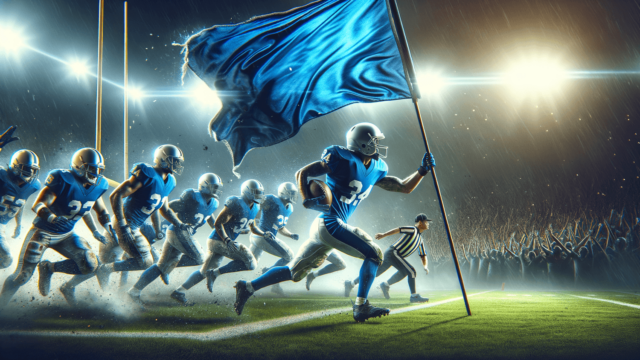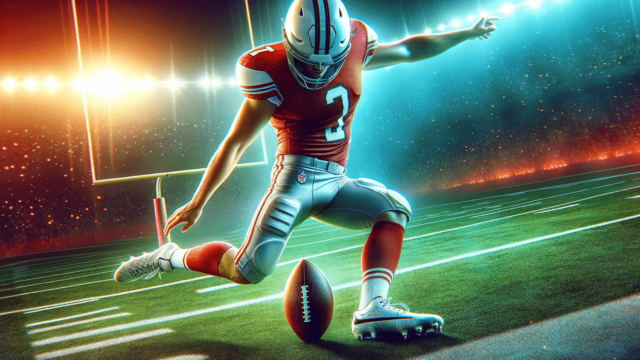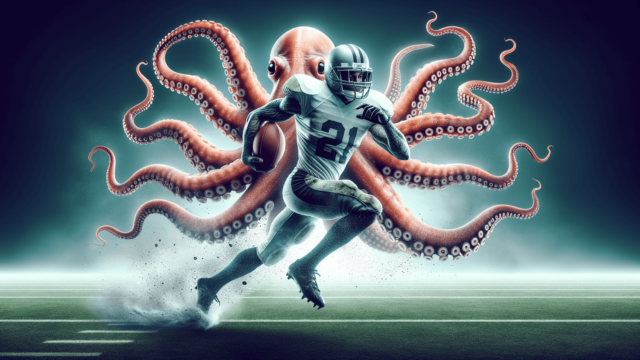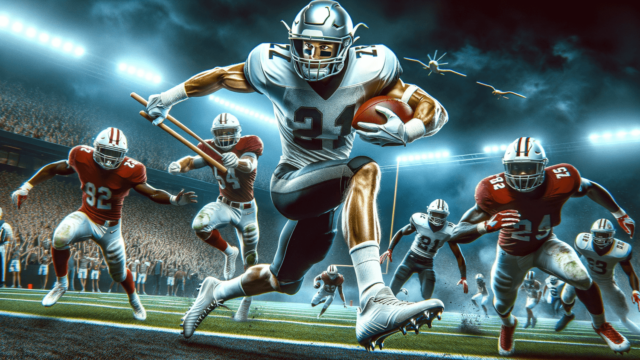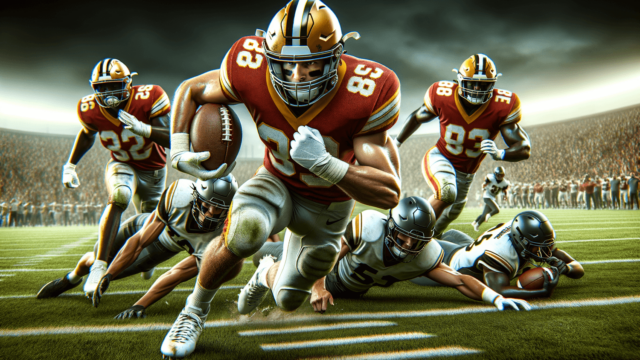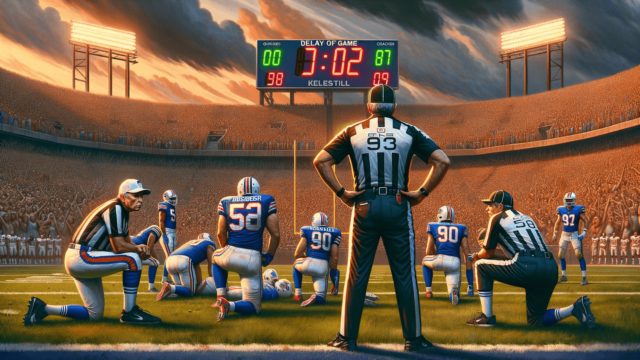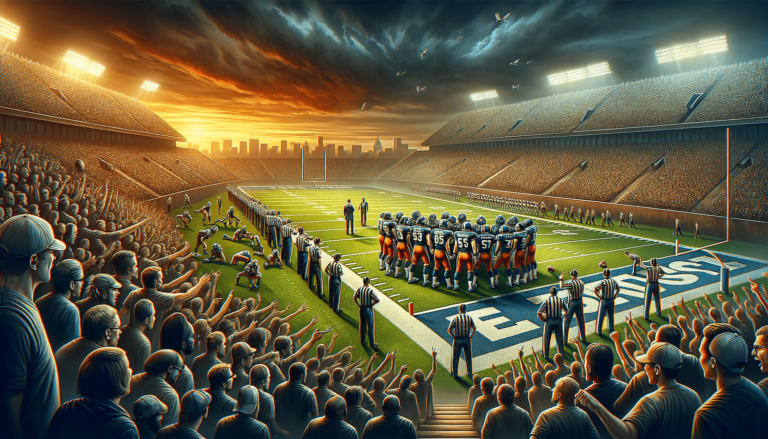
In football, PR stands for Punt Returner, a player responsible for catching and advancing the ball after an opponent punts. They possess great speed, agility, and vision to find gaps for potential yardage gains and avoid tacklers.
Understanding the Punt Returner (PR) Role in Football
The Punt Returner (PR) is a crucial special teams role in the game of football. The PR is responsible for catching that opponent’s punts and looking for opportunities to advance the ball towards the end zone. This position demands exceptional skills, including speed, agility, and vision to identify holes and elude defenders.
PR Selection: Factors to Consider
1. Speed and Acceleration
PRs must be able to reach top speeds quickly, enabling them to outrun opponents when an opening appears. They should also be able to maintain their speed and control while changing directions.
2. Agility and Quickness
Aside from speed, PRs should possess remarkable agility and footwork to make split-second moves and dodge tackles, as they often face several defenders converging on them at once.
3. Vision and Instincts
Great PRs have exceptional vision when scanning the field, allowing them to quickly identify holes and running lanes. Instincts also play a significant role in reacting to defenders’ movements and anticipating where openings might emerge.
4. Ball Security
Ensuring tight ball control is essential for any PR, as avoiding fumbles ensures they retain possession for their team and protect any yardage gains made during the return.
Punt Returners: Impact on Field Position
A skilled Punt Returner can have a significant impact on field position. By returning the ball far enough, they can give their offensive teammates a shorter distance to cover, increasing the likelihood of scoring. The ability to make game-changing plays, such as scoring touchdowns on punt returns or flipping the field position in favor of their team, make PRs a valuable asset in any football game.
Special Skills for Punt Returners
There are certain skills that make a Punt Returner stand out from the rest, ensuring maximum success on the football field. Some of these specialized skills include:
Fearlessness
A Punt Returner must display courage when fielding punts, as they often expose themselves to powerful hits from oncoming defenders focused on preventing any yardage gains. Fearlessness enables PRs to remain undeterred by these challenges and maintain their focus on the task at hand.
Spatial Awareness
Successful PRs have excellent spatial awareness, which allows them to understand the positioning of both teammates and opponents. This skill is crucial when navigating tight spaces, communicating with teammates creating blocks, and avoiding penalties.
Roles and Responsibilities during a Punt Return
Punt Return Blocking
While the Punt Returner is responsible for the actual return, teammates play a critical role by setting up effective blocks to create a running lane for the returner. Punt return blocking involves agility, patience, and excellent communication among teammates.
Penalties and Impact on Returns
During punt returns, players must be cautious of penalties that could negate any yardage gains and field position advantages. Some common penalties during punt returns include blocking in the back, holding, and clipping. Being aware of these penalties and playing within the rules will enhance the effectiveness of any Punt Returner.
Notable Punt Returners in Football History
Throughout football history, there have been several prolific Punt Returners who have set records and left indelible marks on the game. Some noteworthy names include:
–
Devin Hester: Widely regarded as one of the greatest return specialists in NFL history, Devin Hester holds numerous records, including the most punt return touchdowns and the most combined kick return touchdowns.
–
Brian Mitchell: Mitchell stands as the NFL’s all-time leader in total return yards, showcasing his exceptional skillset as both a kick returner and punt returner during his illustrious career.
–
Dante Hall: Known as the “Human Joystick” due to his mesmerizing moves, Hall was a dominant force in the early 2000s, making big plays and leaving defenders in the dust with his remarkable agility.
Conclusion
Frequently Asked Questions about Punt Returners
Now that you’re familiar with the role of Punt Returners in football, let’s address some common questions to deepen your understanding of PR’s significance in the game:
How does a Punt Returner differ from a Kick Returner?
A Punt Returner primarily handles punts, whereas a Kick Returner focuses on kickoffs. Although both roles have similarities like speed and vision, the strategies and nuances in returning each type of kick differ. Some players are highly skilled at both roles, but specialized returners cater to each play situation.
Is every punt return always a big play?
While Punt Returners aim to make big plays, not every return results in a significant gain or touchdown. Sometimes, the opponent’s punt coverage limits the returner’s advancement, or the PR decides to make a fair catch due to the proximity of opposing defenders.
What is a fair catch in football?
A fair catch is a signal made by the PR to indicate they will not attempt to advance the ball after catching the punt. By calling a fair catch, the PR prevents additional yardage loss and avoids being tackled, but they also give up the opportunity to advance the ball on the play.
How do teams choose their Punt Returners?
Teams typically select Punt Returners based on a combination of factors, including their physical abilities (speed, agility, ball security), mental attributes (vision, instincts), and specialized skills (fearlessness, spatial awareness). Additionally, proven record and experience in the role can also play a significant part in PR selection.
What is the average Punt Returner’s career longevity?
The career longevity of a Punt Returner can vary depending on several factors, such as injury history, skill level, and adaptability. Some PRs experience long careers, while others may have shorter stints or transition to other positions within the team to preserve their longevity in the sport.
Featured Posts
- No pillar pages found.
